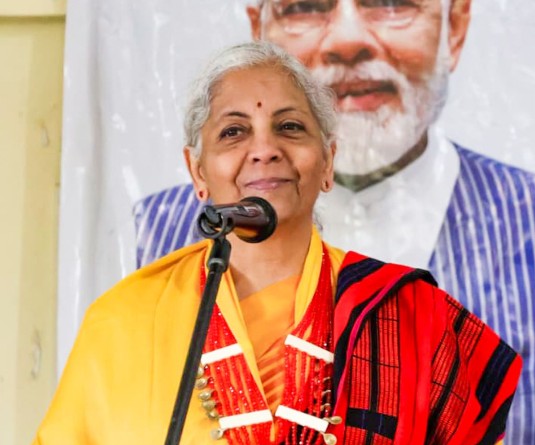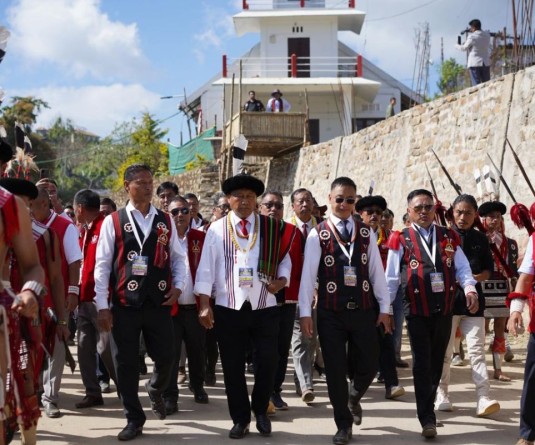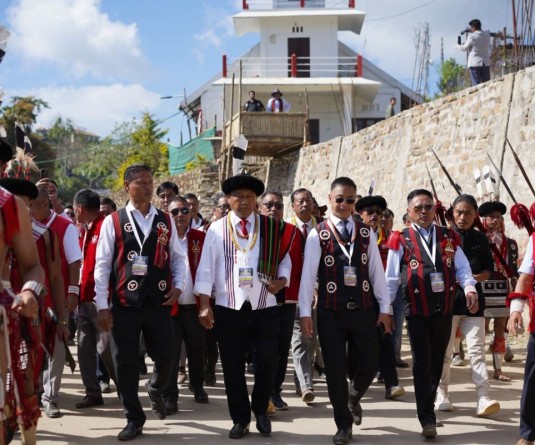
Morung Express News
Dimapur | February 2
Can ‘Forgiveness’ and ‘Politics’ blend and how does forgiveness impact politics?
These were two pertinent questions raised by Dr. Kethoser (Aniu) Kevichüsa, the speaker of the 11th Morung Lecture held here at Elim Hall, DABA, on Thursday.
Discoursing on the topic ‘Forgiveness and politics”, Kevichüsa shared the concept of forgiveness, explored how forgiveness can impact politics; took the audience to revisit the whole idea of politics and, at the end of the lecture, established how forgiveness and politics share an “intrinsic relationship.”
Contrary to the views of many people that forgiveness is just an intra-personal or private affair, for Kevichusa, forgiveness is more an inter-personal issue and involves at least two people including the wrong doer and the wronged.
The theologian-scholar also said forgiveness is not the same as forgetting, for if a wrong were to be forgotten, the need to forgive does not arise. He added sometimes it is humanely impossible to forget some serious wrongdoings and this may turn out to be not as bad if the inability to forget checks similar wrongdoings.
Forgiveness, he added, involves truth, condemnation and judgment but at the same time requires forbearance, especially from taking revenge. Kevichusa asserted that it takes more strength to forgive than to hate.
Kevichusa said personal acts of forgiveness can impact society and the larger political sphere by leaving deep and lasting impressions in the psyche of people and reminding society that revenge and violence can be transcended.
Such acts not only help to cool down frayed tempers but also results in repentance of the wrong doer or perpetrator.
The concept of forgiveness also results in greater movements for peace, Kevichusa said and recalled the peace initiatives of Forum for Naga Reconciliation (FNR), which resulted in the signing of the 2009 ‘Covenant of Reconciliation’ by the warring Naga political groups.
Contrary to common Naga concept that politics is all about election, struggle for power and making money, he said politics is about learning the art to live and interact together in the midst of diversities without resorting to war or violence, about dialogue and negotiation to settle issues and about sharing resources.
And in the context of both the Indo-Naga political problem and intra-Naga conflicts, Kevichusa conveyed satisfaction that the parties involved have moved forward from a situation of war to negotiation and dialogue, which, he said would not have been possible without politics.
During the discussion hour, replying to questions, Kevichusa stated that if politics is about dialogue and negotiation, there are some Naga leaders who refuse to do politics. On the other hand, there are some leaders who are over willing to compromise and forgive. We need to explore options – do we really need to go to war or is there a way out through dialogue and negotiation? He questioned.
He further stated that the Naga scenario is entangled in a web, and that all sides have in one way or other done wrong or has been wronged.
On the part of the Government of India, he viewed that the Indian state has not sought forgiveness explicitly. Kevichusa however noted that recognition of the Naga problem as a political issue and willingness to dialogue can be seen as undercurrents of forgiveness.






